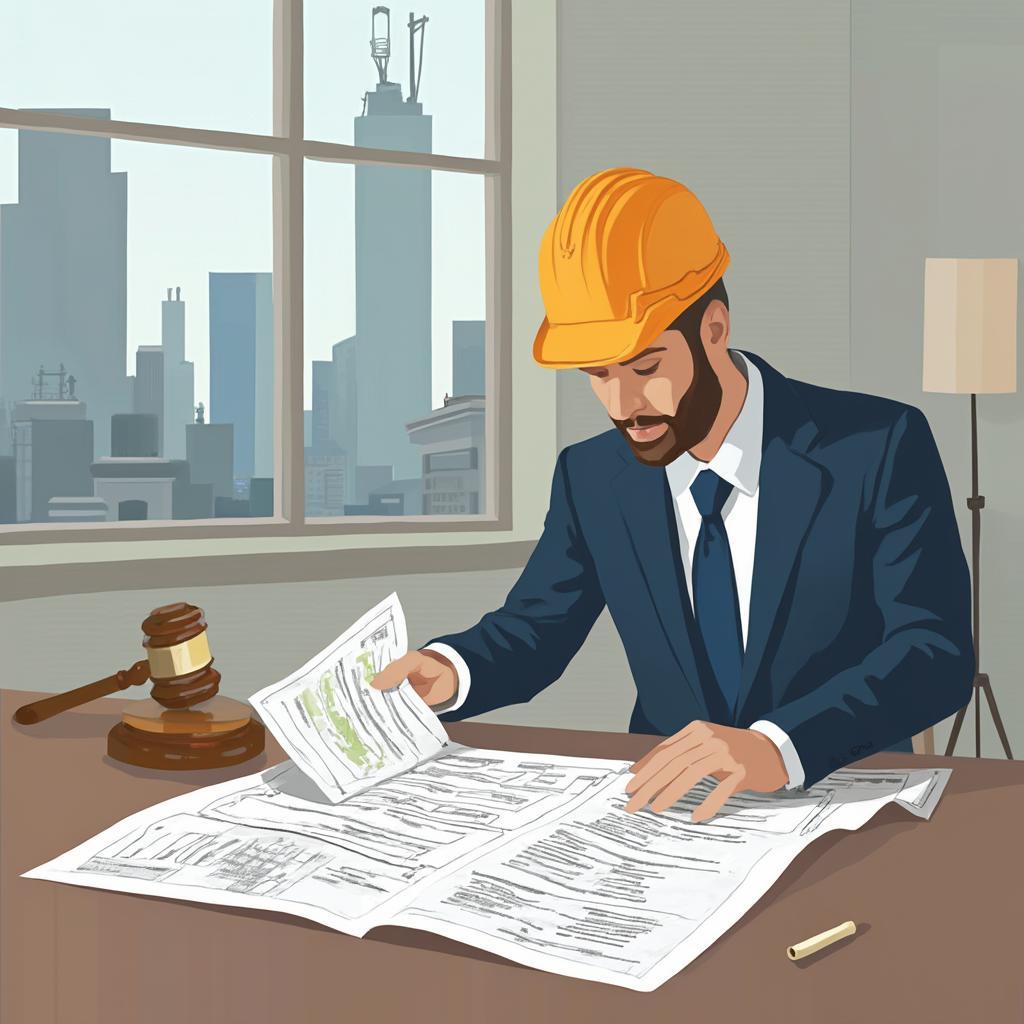
What Does a Construction Lawyer Do?
A construction lawyer navigates the complex legal landscape of the construction industry. They provide vital legal counsel and representation to various parties involved in construction projects, from contractors and subcontractors to owners and developers. Their expertise ensures projects are completed on time, within budget, and in accordance with all legal requirements.
Understanding the Role of a Construction Lawyer
Construction law is a specialized field involving a deep understanding of contracts, liability, permits, and disputes. A construction lawyer’s responsibilities are diverse, encompassing all stages of a project, from inception to completion.
Key Responsibilities of a Construction Lawyer
- Contract Drafting and Negotiation: Construction lawyers are adept at drafting and negotiating various construction contracts, including those for design, procurement, construction, and operation. They ensure contracts protect their client’s interests and clearly define roles, responsibilities, and payment terms. This includes handling crucial clauses related to change orders, delays, and dispute resolution.
- Regulatory Compliance: Navigating the maze of building codes, zoning regulations, and environmental permits is a critical aspect of construction law. Construction lawyers help clients secure the necessary approvals and ensure compliance throughout the project lifecycle.
- Dispute Resolution: Disputes are common in construction projects. A construction lawyer represents clients in mediation, arbitration, and litigation to resolve disagreements related to payments, delays, defects, and other contractual breaches. They aim to achieve favorable outcomes while minimizing disruption to the project.
- Risk Management: Construction lawyers advise clients on potential legal risks and implement strategies to mitigate them. They help develop comprehensive risk management plans to address potential issues such as unforeseen site conditions, material price fluctuations, and contractor defaults.
- Lien and Bond Claims: Construction lawyers handle mechanic’s liens and payment bond claims, protecting their client’s financial interests in the event of non-payment. They understand the intricate procedures for filing and enforcing these claims.
Why Hiring a Construction Lawyer is Crucial
Engaging a construction lawyer early in a project can save significant time, money, and stress. Their proactive approach helps prevent disputes and ensures compliance with all legal requirements. A construction lawyer can:
- Protect Your Investments: Construction projects involve substantial financial investments. A lawyer ensures contracts are structured to protect your capital and minimize potential losses.
- Avoid Costly Disputes: By addressing potential legal issues proactively, a construction lawyer can help avoid costly and time-consuming disputes.
- Ensure Timely Project Completion: A lawyer’s involvement can streamline the legal aspects of a project, minimizing delays and ensuring timely completion.
What Questions Should I Ask a Potential Construction Lawyer?
Choosing the right construction lawyer is vital. Here are some key questions to consider:
- What is your experience in construction law?
- What types of construction projects do you typically handle?
- What is your approach to dispute resolution?
- How do you bill for your services?
- Can you provide references from previous clients?
“A proactive approach to legal counsel is the cornerstone of successful construction projects,” says Tran Van An, a leading construction lawyer at Lodeza Blog. “By addressing potential legal issues early on, we can minimize risks and ensure projects stay on track.”
 Construction Lawyer Ensuring Regulatory Compliance
Construction Lawyer Ensuring Regulatory Compliance
Types of Construction Law Cases
Construction law encompasses a wide range of legal issues, including:
- Breach of Contract: Disputes arising from failure to fulfill contractual obligations.
- Construction Defects: Claims related to faulty workmanship or materials.
- Payment Disputes: Disagreements over payment amounts or schedules.
- Mechanic’s Liens: Legal claims filed by contractors or suppliers to secure payment for services rendered.
- Delay Claims: Disputes related to project delays and associated costs.
“Understanding the nuances of construction law is essential for protecting your rights and interests,” advises Nguyen Thi Lan, a senior construction lawyer with extensive experience in dispute resolution. “A skilled lawyer can navigate the complexities of these cases and achieve the best possible outcome for their clients.”
Conclusion
A construction lawyer plays a vital role in the success of construction projects. Their expertise in contract negotiation, regulatory compliance, and dispute resolution protects the interests of all stakeholders and ensures projects are completed efficiently and legally. Seeking legal counsel early in the planning stages can significantly reduce risks and contribute to a positive outcome. Don’t underestimate the value of a knowledgeable construction lawyer in navigating the complexities of the construction industry.
FAQ
- What is the average cost of hiring a construction lawyer?
- Do I need a construction lawyer for small projects?
- How do I find a reputable construction lawyer in my area?
- What is the difference between a construction lawyer and a real estate lawyer?
- What are common red flags in construction contracts?
- How can I avoid construction disputes?
- What are the steps involved in filing a mechanic’s lien?




